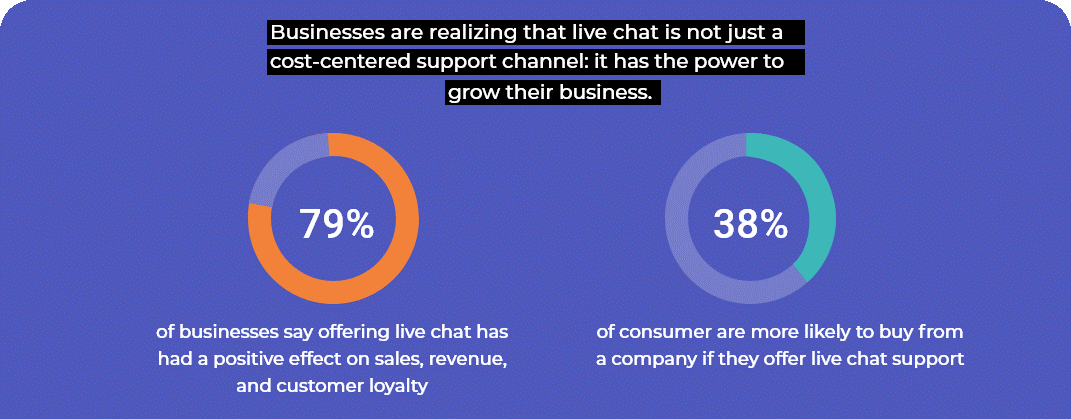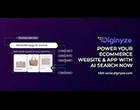
The world of wholesale commerce has transformed greatly. While manual processes may have yielded success for past generations of entrepreneurs, the modern B2B landscape demands a more streamlined and innovative approach. Thankfully, the digital revolution has empowered wholesalers with a powerful weapon: automation.
Bottlenecks of Manual Wholesale Operations
For decades, the backbone of wholesale commerce has been a manual approach – a system reliant on phone calls, emails, and physical interactions. While this method has yielded success stories, it inherently possesses limitations that hinder scalability and efficiency in today's competitive environment.
Key Challenges:
-
Time Constraints: Manually processing orders, managing inventory, and responding to customer inquiries consumes a significant amount of time. This limits the capacity for growth and hinders the ability to focus on strategic initiatives. For instance, a sales representative spends a large portion of their day manually entering order details, sending invoices, and following up with customers via email. This not only eats into their time but also limits their ability to build relationships with key accounts or explore new market opportunities.
Read Also:How Industrial B2B eCommerce Automation is Revolutionizing Wholesale Distribution?
-
Human Error: Manual data entry and order processing are prone to errors. These mistakes can disrupt workflows, lead to inaccurate inventory levels, and damage customer relationships. A single misplaced keystroke when entering product quantities can lead to overselling or understocking, causing delays, stockouts, and frustrated customers.
-
Limited Scalability: As your wholesale business expands, manually managing operations becomes increasingly difficult. This can hinder your ability to capitalize on new market opportunities. Suppose your business experiences a surge in demand due to a successful marketing campaign. Manually processing the influx of orders and managing the increased inventory can quickly become overwhelming, potentially leading to missed opportunities and customer dissatisfaction.
-
Inefficient Customer Service: Responding to individual customer inquiries via phone or email is time-consuming and reactive. Proactive communication and self-service options are crucial for fostering exceptional customer experiences. Imagine a customer needing to check on the status of their order or having a question about a product detail. With a manual system, they would need to wait for a response from a sales representative, leading to delays and frustration.
Read Also:The Rise of AI-Powered Conversational Commerce

Image Source: Smart Insights
Benefits of Automation in Streamlining Wholesale Operations
Fortunately, automation presents a compelling solution to these challenges. By leveraging the technology to automate repetitive tasks, wholesale businesses can unlock tons of benefits:
-
Enhanced Efficiency: Automating tasks like order processing, invoicing, and inventory management frees up valuable time for strategic endeavors. This allows you to focus on building stronger customer relationships and exploring new market opportunities. Imagine an automated system that seamlessly processes orders, generates invoices, and updates inventory levels in real-time. This frees up your sales team to focus on high-value activities like building rapport with key accounts, developing strategic partnerships, and exploring new product lines.
-
Improved Accuracy: Automation eliminates the risk of human error associated with manual entry. This ensures accurate inventory levels, on-time deliveries, and a smoother overall operation. Automated systems can integrate with your existing software and warehouse management systems, ensuring data consistency and eliminating the possibility of errors caused by manual data entry.
-
Effortless Scalability: You can seamlessly onboard new customers, manage a wider range of products, and scale your operations effortlessly. As your business grows, an automated system can seamlessly handle the increased workload without requiring additional manpower. You can easily onboard new customers, add new product lines, and expand your operations without worrying about overwhelming your staff.
-
Superior Customer Service: Automated systems can provide customers with 24/7 self-service options for order tracking, account management, and product information. This empowers your customers and fosters a more convenient and positive buying experience. Customers can access a self-service portal to track their orders, download invoices, and access product information at any time. This empowers them to manage their accounts independently and reduces the strain on your customer service team.
Also Read:How Automation Can transform your eCommerce Business?
Implementing Automation for Wholesale Ecommerce Success: A Strategic Guide
Having understood the compelling benefits of automation, let's delve into a practical roadmap for implementing an automation solution within your wholesale ecommerce business. Here's a breakdown of the key steps involved:
-
Identifying Automation Opportunities: The first step is to precisely evaluate your current workflows and pinpoint areas where automation can yield the most significant impact. Focus on repetitive, time-consuming tasks prone to human error. Here are some prime factors for automation:
-
Order Processing: Automating order processing eliminates the need for manual data entry, streamlines order fulfillment, and ensures faster delivery times.
-
Inventory Management: Automated inventory management systems track stock levels in real-time, prevent stockouts, and trigger automatic purchase orders when inventory dips below a predefined threshold.
-
Customer Relationship Management (CRM): CRM system automates tasks like sending personalized emails, managing customer accounts, and tracking customer interactions.
-
Marketing Automation: Automate email marketing campaigns, manage social media scheduling, and personalize customer interactions based on purchase history and preferences.
-
Accounting and Invoicing: Integrate your ecommerce platform with accounting software to automate invoice generation, payment processing, and reconciliation tasks.
-
Selecting the Right Automation Tools: With a clear understanding of your automation needs, research and evaluate various automation software solutions available in the market. Consider factors like:
-
Features and Functionality: Ensure the chosen eCommerce solution offers the specific functionalities required to automate your targeted tasks.
-
Scalability: Choose a platform that can adapt and grow alongside your business.
-
Ease of Use: Select a user-friendly platform with an intuitive interface that minimizes onboarding time and training requirements for your team.
-
Integration Capabilities: Ensure seamless integration with your existing ecommerce platform, accounting software, and other relevant business systems.
-
Pricing: Compare pricing models and choose a solution that aligns with your budget and offers the best value for your investment.
-
Planning and Implementation: After selection of automation tools, it's important to meticulously plan the implementation process. Here are key considerations:
-
Data Migration and Legacy Integration: If you're switching from manual processes, develop a comprehensive plan for migrating existing customer data, product information, and order history to the new automated system.
-
Workflow Mapping: Clearly define and document the new automated workflows, ensuring all team members understand the revised processes.
-
Testing and Training: Prior to full-scale deployment, rigorously test the automation solutions to identify and resolve any potential issues. Provide adequate training to your team members on how to utilize the new systems effectively.
-
Monitoring and Optimization: Following implementation, consistently monitor the performance of your automation solutions. Track key metrics like order processing times, inventory accuracy, and customer satisfaction levels. Analyze the data to identify areas for improvement and fine-tune your automation workflows for optimal results.
Learn More:eCommerce Strategies for Wholesale Distributors: Navigating the Digital Shift
Advanced Automation Strategies for Wholesale Ecommerce
While the strategies outlined above provide a solid foundation for automation success, there's more to explore for those seeking a competitive edge. Here are some advanced automation tactics to consider:
-
Machine Learning (ML) and Artificial Intelligence (AI): Leverage AI-powered eCommerce automation to personalize product recommendations, automate customer service interactions with chatbots, and gain deeper insights into customer behavior for targeted marketing campaigns.
-
Warehouse Automation: For businesses with high-volume operations, consider warehouse automation solutions like automated picking and sorting systems to streamline fulfillment processes and reduce labor costs.
-
Predictive Analytics: Utilize data analytics to anticipate customer demand and optimize inventory levels, preventing stockouts and maximizing sales opportunities.
By embracing automation and implementing these advanced strategies, wholesale ecommerce businesses can unlock a new era of efficiency, accuracy, and customer satisfaction. As you navigate the ever-evolving B2B landscape, automation will be your indispensable weapon, empowering you to streamline operations, outpace competitors, and achieve unprecedented levels of success.
Also Read:From Clicks to Conversions: AI and Automation Reimagining eCommerce
The Future of Wholesale Ecommerce: A World Powered by Automation
The revolution of automation in wholesale eCommerce is just getting started. Expect even smarter tools to emerge, transforming the industry:
-
Hyper-personalization: Platforms suggesting products, pricing, and communication styles tailored to each customer.
-
Automated negotiations: AI-powered tools will facilitate dynamic pricing based on market data and buying history, streamlining negotiations and ensuring fair prices.
-
Voice commerce: Voice assistants like Alexa, Siri and Google will enable seamless ordering and information retrieval through voice commands.
-
Wholesaler's evolving role: Automation will free wholesalers to become strategic advisors, leveraging data to provide value-added services and build stronger customer relationships.
Takeaway
The wholesale ecommerce landscape is on the cusp of a transformative era driven by automation. By embracing the power of automation, wholesale businesses can unlock a world of enhanced efficiency, improved customer experiences, and unparalleled growth opportunities. As automation continues to evolve, the future of wholesale ecommerce promises to be a dynamic and exciting space. This comprehensive guide by Diginyze aims to equip you with the knowledge and tools to navigate the automation revolution and propel your wholesale ecommerce business towards unparalleled success.
Ready to take your wholesale eCommerce business to the next level? Schedule a free demo today and experience the platform in action.
Recent Blogs
Explore latest insights and trends in technology and eCommerce.
Case Studies
Your Digital Transformation Starts Here!
Join thousands of businesses transforming with Diginyze. Sign up today and start now!


























